Scholarship on Teaching
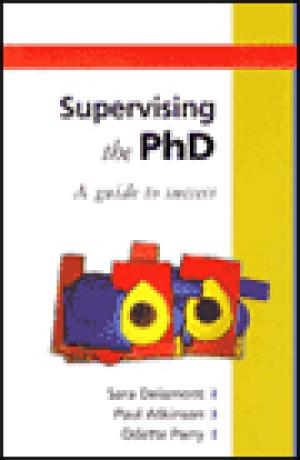
This guide to supervising doctoral research is a practical handbook for both the novice and the experienced higher degree supervisor. It looks at how to get students to produce good PhD theses on time, and how to prevent failed theses. (From the Publisher)
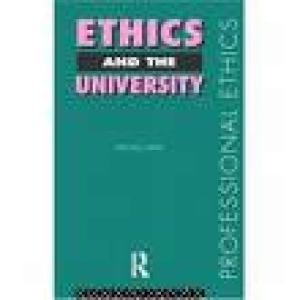
Brings together two related topics: the practice of ethics in the university, and the teaching of practical or applied ethics in the university. Surveys practical ethics, offering an explanation of its recent emergence as a university subject, and identifies some problems that the subject generates for universities. Examines research ethics, including the problem of plagiarism, and discusses how ethics can be integrated into the university curriculum and what part particular cases should play in teaching of ethics. Also looks at sexual ethics. (From the Publisher)

This book is as much, perhaps more, an exhortation to action than a piece of social science research. In an age when the idols of the tribe or the centrality of self are aggrandized, is it possible to restore a sense of human purpose that extends beyond place or person? To answer this question a core of 100 people, determined as "capable of sustaining commitment to the common good in the face of global complexity," were interviewed, not so much to "prove hypotheses" but to develop "fertile insights" for further research and action in order to "kindle a common fire and forge a new synthesis of practical wisdom." This requires people who can regard space as hospitable, inhabited by mentors and others capable of demonstrating that one can and ought to make a difference in the world; people who can develop habits of mind to engage others and a symbolic world, including the world of story and faith, capable of sustaining a committed consciousness. Two "interludes" describe those who exhibit that concern for the commons, and an epilogue suggests an individual and collective strategy to nourish the sense of the collective. (From the Publisher)
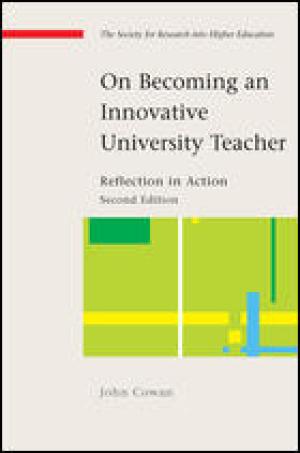
This unusual book begins each chapter by posing a question with which college and university teachers can be expected to identify; and then goes on to answer the question by presenting a series of examples; finally, each chapter closes with 'second thoughts', presenting a viewpoint somewhat distinct from that taken by John Cowan. This book will assist university teachers to plan and run innovative activities to enable their students to engage in effective reflective learning; it will help them adapt other teachers' work for use with their own students; and will give them a rationale for the place of reflective teaching and learning in higher education. (From the Publisher)
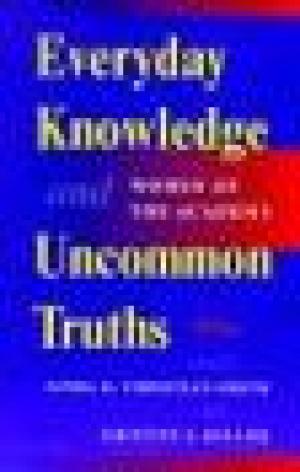
Everyday Knowledge and Uncommon Truths: Women of the Academy draws on the life experience and varied backgrounds of academic women from the United States, Australia, New Zealand, and Canada. To provide diverse perspectives on women's experiences of being and knowing in and outside the academy, contributors draw on a range of critical approaches derived from feminism, post-structuralism, postmodernism, critical education theory, discourse theory and analysis, narrative inquiry, and life histories. (From the Publisher)
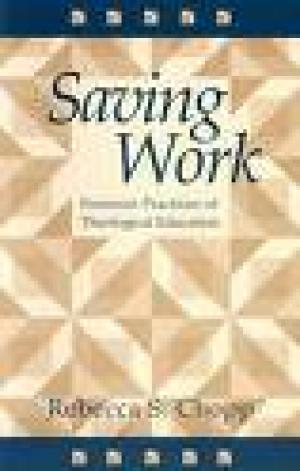
One of the most significant changes in theological education during the past two decades has been a dramatic rise in the enrollment of women in the seminaries. In this ground-breaking book, Rebecca Chopp explores the impact these new voices are having on theological education. She looks at how women and men are actually forming a new Christian praxis through their engagement with feminist practices and thought that often exist outside the sphere of official recognition. This important book will be a starting point for dialogue about the role theological education will play as this new Christian praxis emerges. (From the Publisher)
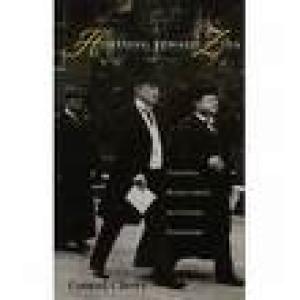
The colorful study of university divinity schools in America. This historical analysis of American Protestant university-related divinity schools tells their story in terms of powerful social and cultural forces that decisively influenced American education in general and Protestant theological education in particular. (From the Publisher)

Using the research of feminist literary critics and building upon the work of feminist biblical scholars, Emily Cheney offers three strategies for women whose ecclesiastical traditions expect them to base their sermons on biblical texts, and for women who want their sermons to reflect a feminist consciousness and compassion. The strategies focus on gender reversal, analogy, and women as exchange objects, all tested on several texts without female characters from the Gospel of Matthew. A concluding section reflects upon what role the authority of the text plays when readers use these strategies. (From the Publisher)
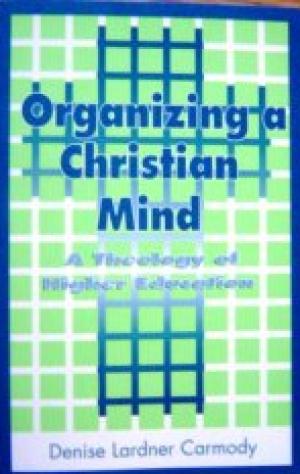
"The sadness I feel," writes Denise Carmody, "stems from watching the capitulation of good schools, both Christian and secular, to the pragmatism of recent times and their concomitant loss of a pervasive vision of their enterprise." Such capitulation has produced a serious crisis in American higher education, including also church-sponsored higher education, leading to a preoccupation with research and publication instead of teaching and to frequent inattention to ultimate human questions. Following an introductory discussion of teaching, research and publication, and "the difference that God makes," the book moves through such topics as human nature, physical nature, politics, divinity or ultimate reality, and education (including community services, academic freedom, and the arts and sciences). A concluding chapter focuses on vision in higher education, that is, gaining a clear sense of what a collegiate venture wants to do and the kind of curriculum and teaching that squares with what a college is trying to achieve. (From the Publisher)
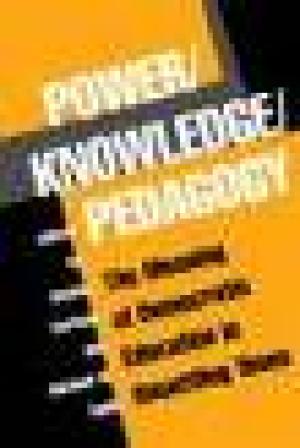
The essays in this volume explore the educational implications of unsettling shifts in contemporary culture associated with postmodernism. These shifts include the fragmentation of established power blocs, the emergence of a politics of identity, growing inequalities between the haves and the have-nots in a new global economy, and the rise in influence of popular culture in defining who we are. In the academy, postmodernism has been associated with the emergence of new theoretical perspectives that are unsettling the way we think about education. These shifts, the authors suggest, are deeply contradictory and may lead in divergent political directions—some of them quite dangerous Power/Knowledge/Pedagogy examines these issues with regard to four broad domains of educational inquiry: state educational policy and curriculum reform, student identity formation, the curriculum as a text, and critical pedagogy. The book contributes to the dialogue on the forging of a new commonsense discourse on democratic educational renewal, attuned to the changing times in which we live. (From the Publisher)